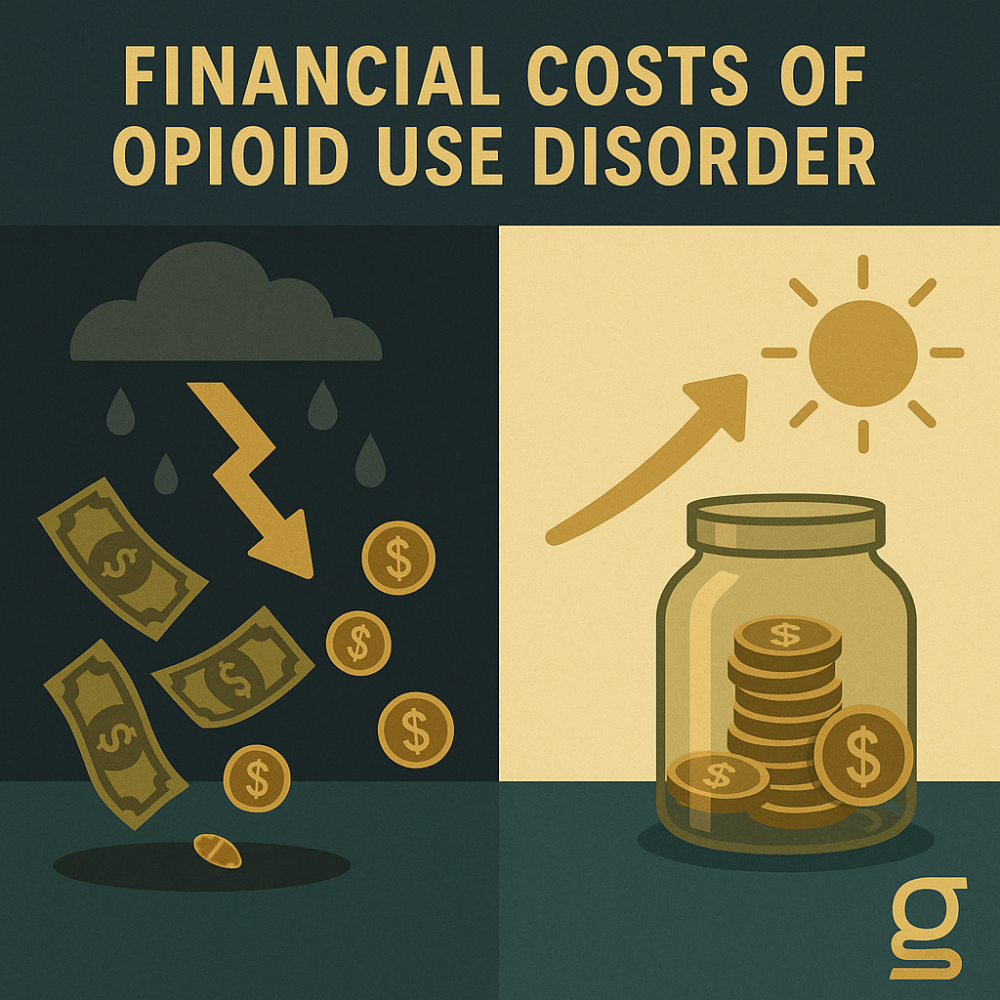Adderall is a combination of amphetamine and dextroamphetamine (d-amphetamine) commonly used to treat attention deficit and hyperactivity disorders (ADHD) and narcolepsy. Wellbutrin, the generic name of bupropion, is an antidepressant that is also used to help quit smoking. There is some evidence that, like Adderall, Wellbutrin improves attention and impulse control in specific populations, though the FDA has not yet approved its prescription for this purpose. While it might sound like Adderall and Wellbutrin are well-suited for simultaneous use, taking both drugs at once puts you at risk for a significant range of complications and can quickly lead to dangerous territory.
Increased Risk of Seizures From Adderall and Wellbutrin
Suppose you’ve received a prescription for this antidepressant. In that case, you’re probably aware that Wellbutrin is associated with seizures in about 1 in 1,000 patients, constituting an increase of up to 400% in incidence compared to similar antidepressants on the market. The risk of seizure further increases by nearly tenfold at doses of 600mg/day. As a central nervous system stimulant, Adderall also reduces a person’s seizure threshold. When taken in combination with stimulants like Adderall, Wellbutrin presents an even higher risk for seizures, to the point that it can significantly affect even a person who had previously not seen seizures or related symptoms from taking either drug individually.
People at a heightened risk for seizures due to Wellbutrin and Adderall include people who are in the process of recovering from substance use disorder. Withdrawal from the consistent use of alcohol, sedatives, opiates, cocaine, or stimulants can put a person in greater danger of central nervous system complications and should act as a factor when deciding upon a course of medication.
Appetite Suppression and Weight Loss
28% of patients who take Wellbutrin experience weight loss greater than five pounds, and significantly fewer experience weight gain than patients who take other antidepressants. Wellbutrin is so widely linked to loss of appetite and is described as anorectic.
Weight loss and appetite suppression are two of the most common side effects of amphetamines like Adderall. Adderall and Wellbutrin have even been tested in the same studies for use against compulsive eating. Taking the two drugs simultaneously puts a patient at significant risk for suppressed appetite and weight loss to the point of malnourishment or bodily harm.
Liver Damage from Wellbutrin and Adderall
While Adderall rarely causes severe liver damage at prescribed doses, it can pose a more significant risk when taken recreationally. Amphetamines are long associated with liver toxicity and damage, and even Adderall can pose a threat when combined with other medications that have the potential to affect liver health.
Wellbutrin bears a warning that patients with liver damage, especially cirrhosis of the liver, should be treated with extreme caution when being considered for a prescription. Wellbutrin has been linked to lasting liver problems, mostly in those whose livers could not process it properly. Combining Adderall and Wellbutrin may pose a significant risk for liver damage or toxicity, especially in patients who may have sustained liver problems in the past.
Heart Problems Associated with Adderall and Wellbutrin
Wellbutrin has been linked with high blood pressure, sometimes to emergency levels. While this effect is most prevalent in people who already have a history of high blood pressure, it also appears more in patients using the drug to quit smoking. The FDA states, “There is no clinical experience establishing the safety of Wellbutrin in patients with a recent history of myocardial infarction [heart attack] or unstable heart disease. Therefore, care should be exercised if it is used in these groups.”
Adderall and other stimulants have long been the source of debate due to their cardiovascular health implications. Common heart-related side effects of Adderall include hypertension and elevated heart rate. One study found that 3% of otherwise healthy adults experienced adverse cardiovascular effects, including severe high blood pressure, heart palpitation, or tachycardia, when using Adderall. When combined with the dangers that Wellbutrin can pose to a patient’s heart health, the potentially negligible cardiovascular symptoms presented by Adderall can quickly become far more life-threatening. Taking Wellbutrin and Adderall together adds a significant risk of long-term heart problems and sudden death by a heart attack.
Are you or someone you love dealing with Prescription Drug Abuse? 866-272-5978
Contact UsWellbutrin, Adderall & The Risk of Serotonin Syndrome
Serotonin syndrome is a rare but potentially life-threatening condition that can occur when there is an excess of serotonin in the body. Serotonin is a neurotransmitter that plays a crucial role in regulating mood, among other functions. When certain medications, such as Wellbutrin and Adderall, are taken together, they can lead to an accumulation of serotonin, which can trigger serotonin syndrome.
Symptoms of Serotonin Syndrome
Serotonin syndrome can manifest in various ways, and its symptoms can range from mild to severe. Common signs and symptoms of serotonin syndrome include:
- Agitation and Restlessness: Individuals may feel restless, agitated, or unable to sit still.
- Confusion: Serotonin syndrome can cause cognitive impairment and confusion.
- Dilated Pupils: The pupils of the eyes may become dilated.
- Excessive Sweating: Profuse sweating, even in cool conditions, is a possible symptom.
- Increased Heart Rate: Serotonin syndrome can lead to an elevated heart rate.
- Muscle Rigidity: Muscles may become stiff and rigid.
- Tremors: Uncontrolled shaking or tremors may occur.
- Nausea and Vomiting: Gastrointestinal symptoms like nausea and vomiting can be present.
- Headache: Individuals may experience severe headaches.
- High Blood Pressure: Serotonin syndrome can cause hypertension.
Risk Factors and Prevention
Certain factors can increase the risk of developing serotonin syndrome when taking Wellbutrin and Adderall together. These factors include:
- Dosage: Taking higher doses of Wellbutrin and Adderall may increase the risk of serotonin syndrome.
- Other Medications: The concurrent use of other medications that affect serotonin levels, such as selective serotonin reuptake inhibitors (SSRIs) or monoamine oxidase inhibitors (MAOIs), can heighten the risk.
- Individual Variability: Some individuals may be more susceptible to serotonin syndrome due to variations in how their bodies metabolize medications.
To minimize the risk of serotonin syndrome, it is crucial to follow the prescribed dosages of both medications and inform your healthcare provider about all the drugs you are taking, including over-the-counter medications and supplements. If you experience any symptoms of serotonin syndrome or suspect an interaction, seek immediate medical attention.
Overlapping Side Effects
Taking Wellbutrin can raise the blood levels of amphetamines like Adderall. This means that even taking your regular dose of Adderall may result in unexpected side effects or increased agitation if combined with Wellbutrin. Insomnia, agitation, loss of appetite, nausea, and paranoia may all appear or worsen due to the combination of medications.
Taking Wellbutrin as prescribed can also be adversely affected by the introduction of Adderall. The most common potential side effects of Wellbutrin include agitation and insomnia, both of which have some degree of evidence linking them to Adderall as well. The drug may also cause psychological symptoms like psychosis, paranoia, and confusion, even when used as prescribed. All of these symptoms can be exacerbated by Adderall, primarily when used recreationally or off-prescription.
Gallus Can Help
Even when taken according to prescription, Wellbutrin and Adderall can present complications and health problems. When used in combination, they put a patient at much greater risk of developing serious adverse medical conditions. If you or a loved one struggles with problems related to substance use, reach out to professional help.
Gallus Medical Detox Centers offers comprehensive, effective detoxification and stabilization services with a personalized approach. Our environment is safe and supportive, designed to give you the care you need while addressing every aspect of your recovery. We work with you to provide care that meets your unique needs and can help start you on your path toward healing, health, and long-term stability and success. You don’t have to battle with substance use on your own. Get sober, stay sober, and regain control over your life.


 Steve B
Steve B 

 Casey Wilson
Casey Wilson